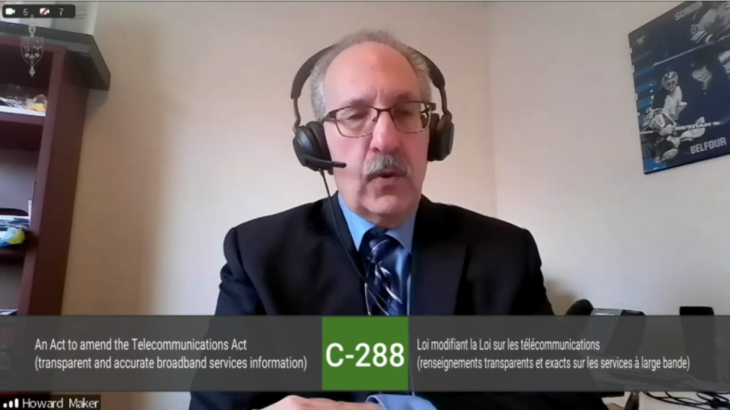
By Ahmad Hathout
OTTAWA – A six-month period of complaints collected by the watchdog Commission for Complaints for Telecom-Television Services between August and January has revealed consumer complaints increased 12 per cent, with wireless being the most-complained about sector and Rogers taking the top spot for the first time following its major network outage last summer.
The Tuesday report tallied 13,962 issues with wireless leading the way with nearly 55 per cent of all issues at 7,616, down 0.9 per cent from the previous six-month period. Internet issues were second with 3,663, down 15.1 per cent; television issues were next with 1,379 issues, down 22.6 per cent; and local phone had 1,239 issues, down 26.9 per cent.
With 1,115 issues, wireless led in disclosure issues, which made up the plurality of issues with 12.4 per cent, or 1,738. Leading in disclosure issues was contract conflicts with agreement, making up 9.3 per cent of all issues, with details of promotion next with 1.3 per cent, and unilateral provider changes rounding out the top three with 1.1 per cent.
Not far behind was quality of service issues, with wireless leading with 673 out of 1,723 issues. Next was incorrect charge, with wireless leading with 899 out of 1,639 issues. Complete loss of service was next with 858, with the internet sector leading here with 314 issues. Rounding out the top five was credit or refund not received with 751 issues and wireless taking top spot at 429 issues.
Roaming charges made up 444 total issues, good enough for eight on the list. The CRTC is currently investigating international roaming rate increases and the federal budget committed to tackling those “junk fees.” Investment firm Globalive has requested last week that the CRTC investigate what it conveyed as outdated domestic roaming charges.
Consumers leveled 1,294 complaints against leader Rogers, which saw an increase of 29 per cent of complaints compared to the comparable period. Most of the complaints related to the category of “complete loss of service.” The company suffered a historic outage in July last year, in which service for millions of Canadians was knocked out.
The CCTS said it received nearly double the number of calls and chats from customers on the day of the outage, with some calls failing to go through because its circuits “were overwhelmed by the call volume.” It said it accepted 187 complaints from Rogers’s customers about the outage. The complaints related to customers not being satisfied by the proactive credits Rogers announced days after the outage, the CCTS said.
Bell was second in complaints with 1,110, though it was the only one of the top five providers by complaints accepted that saw a drop in complaints at 6.1 per cent compared to the equivalent period.
“Our continued improvements in CCTS results is evidence that Bell’s strategy to champion the customer experience is working, even as complaints increase across the telecommunications industry overall,” Bell president and CEO Mirko Bibic said in a press release. “Our investments in our network, enhanced service and digital tools are clearly making a difference, as is our customer-first approach. I want to thank #TeamBell for their unwavering commitment to keep Canadians connected. I am extremely proud of our progress.”
Telus was third in complaints with 970 in the period, but that was up 81.3 per cent compared to the equivalent period the year before.
Rogers’s flanker brand Fido and Telus’s Koodo respectively took the fourth and fifth spots with 887 complaints, up 17.8 per cent compared to the same period the year before, and 672, up 75.5 per cent.
There were 36 confirmed breaches of the Wireless Code. The provider not giving a reasonable notice before disconnection led with 14 breaches, paper or electronic copy was not provided or contract did not include all information with eight and critical information summary with six.
There were four confirmed breaches of the Internet Code, with two issues related to changes to key contract terms after commitment, one related to clarity of offers and one related to when disconnection may occur.
There were 14 confirmed breaches of the television code, with 13 related to changes and notice of changes on programming options and one about clarity of offers.
The CCTS said 434 service providers participated, with 346 providers receiving no complaints. The CRTC requires that service providers sign up with the CCTS.
Parliament is currently contemplating a bill that would require service providers to advertise the typical internet speeds customers should expect to receive during peak hours. The CCTS has recommended that the bill include the requirement in customer contracts so it can better handle complaints related to service expectations.
Screenshot of CCTS head Howard Maker during a committee hearing.



